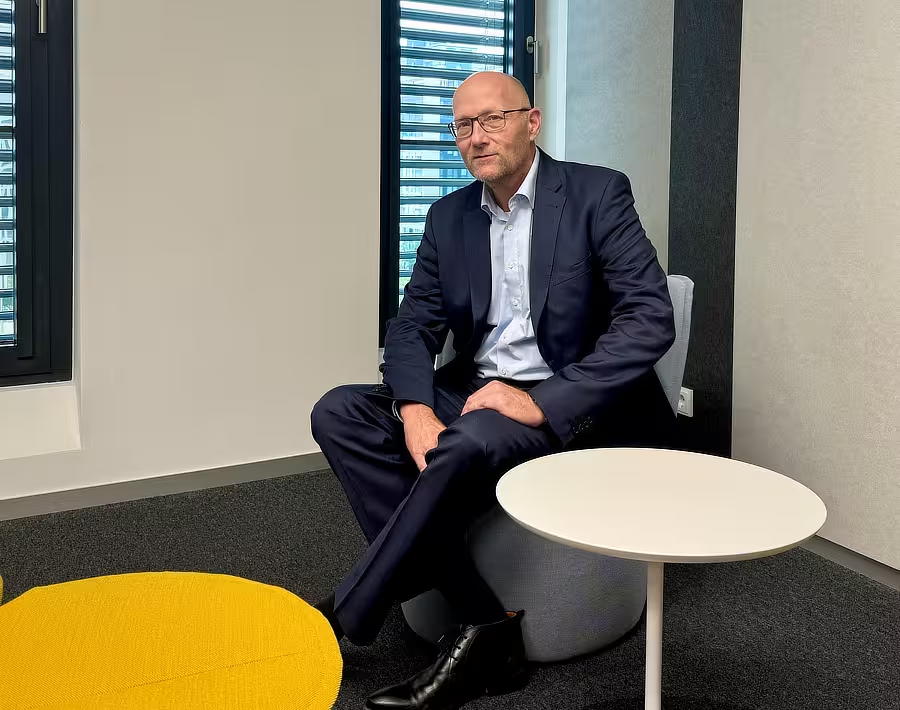CIMAC granted consultative status with IMO: Interview with CIMAC President Rick Boom
11 October 2025
CIMAC—the leading global non-profit association promoting the development of ship propulsion, train drive, and power generation—has been granted a consultative status with the International Maritime Organization (IMO). This milestone brings new political and regulatory responsibilities for the organization, alongside its traditional technical role.
In the interview, Rick Boom, the CIMAC President, shares his insights on CIMAC’s repositioning, the implications of its new role at the IMO and new responsibilities.

Question: Mr. Boom, CIMAC e.V. has a long history...
Answer: Absolutely. CIMAC was founded more than 75 years ago and has evolved from a technical conference into a global platform for innovation and collaboration in the engine and components industry. Originally, our focus was squarely on combustion engines, which were the backbone of industrial propulsion and energy systems. However, as technology and industry needs have shifted, so too has our identity. We recently dropped the subline “International Council on Combustion Engines” to reflect a broader, more inclusive scope. While combustion engines remain central, they are now part of complex, integrated systems that include digital technologies, alternative fuels, and environmental considerations. This evolution is not just semantic, it’s strategic.
Question: CIMAC has been listed as an NGO with consultative status at the IMO in London since last summer. What does this mean for the association?
Answer: This recognition by the International Maritime Organization (IMO) is a major step forward. It acknowledges CIMAC’s technical expertise and positions us as a contributor to global maritime policy. For decades, we’ve facilitated technical exchange among engineers, researchers, and industry leaders. Now, with consultative status, we are invited to participate in regulatory discussions that shape the future of maritime propulsion and sustainability. This new role demands a shift in mindset, from purely technical to strategically political. It’s a challenge we embrace, as it allows us to amplify our voice and influence in international forums.
Question: What concrete steps have been taken to meet these new responsibilities?
Answer: One of our key initiatives has been the formation of the Regulatory Coordination Group (RCG). This group acts as a bridge between our technical working groups and the strategic demands of international policymaking. It includes ambassadors from across our organization, from Working and Strategy Groups, engine manufacturers, suppliers, equipment manufacturers, system integrators, digital service providers, classification societies, and end users. Importantly, it also includes individuals with direct experience at the IMO. This diversity ensures that our position papers and submissions are not only technically sound but also aligned with regulatory expectations and global sustainability goals.
Question: How does this affect the work of the existing working groups?
Answer: The transformation has had a profound impact. Our working groups, which have traditionally focused on technical deep-dives and knowledge sharing, are now being asked to think more broadly. Their output must be actionable in a regulatory context. This means developing documentation that can be submitted to the IMO, contributing to international standards, and anticipating future policy developments. It’s a cultural shift—from engineering excellence alone to strategic influence. We’re seeing a growing awareness among our members that technical expertise must be paired with political engagement to drive meaningful change. The RCG will guide the Working and Strategy Groups in the new approach through clear guidelines and processes, knowledge sharing, and regular alignment meetings.
Question: Are there any new working groups that reflect this transformation?
Answer: Yes, and they’re a testament to our responsiveness to emerging issues. A prime example is our newly established working group on Underwater Radiated Noise. This topic is gaining traction at the IMO due to its environmental impact, particularly on marine life. We’ve brought together 20 experts with specialized knowledge in acoustics, energy efficiency and ship design to address this challenge. Their work will help shape international guidelines and contribute to more sustainable maritime operations.
Question: What are the current focus areas for CIMAC at the IMO?
Answer: Our strategic priorities reflect the complexity and urgency of today’s maritime challenges. These include digitalization, cybersecurity, and data harmonization, which underpin trusted, interoperable data that connects stakeholders, as well as alternative propulsion systems and underwater radiated noise. We’re also advancing training modules to help industry deal with emerging alternative fuels that will be the backbone of decarbonization.
Each of these areas intersects with regulatory frameworks and industry innovation. For example, digitalization and cybersecurity are essential for safe and efficient vessel operations, while alternative propulsion systems are key to decarbonization. By focusing on these topics, CIMAC aims to be a proactive contributor to the global regulatory landscape—not just reacting to changes but helping to shape them.
Question: How is this transformation being financed and supported organizationally?
Answer: Organizationally, we’ve taken deliberate steps to support this shift. We’ve hired a dedicated staff member whose role is to coordinate our political and strategic activities. This person acts as a liaison between our technical experts and external stakeholders, including the IMO. Financially, we continue to rely on our strong membership base, but we’re also exploring ways to broaden our funding sources to ensure long-term sustainability. The transformation is a collective effort, and we’re fortunate to have members who recognize the value of investing in CIMAC’s future.
Question: What do you expect from the members during this new phase?
Answer: We’re asking our members to embrace change, not just in terms of technology, but in how they engage with CIMAC. We need openness to new ideas, active participation in working groups, and a willingness to take on political responsibility. This is a unique moment in our history. The challenges we face - climate change, digital transformation, regulatory complexity - require a united and forward-thinking approach. For CIMAC, for the industry, and for every member, this is an opportunity to lead rather than follow.